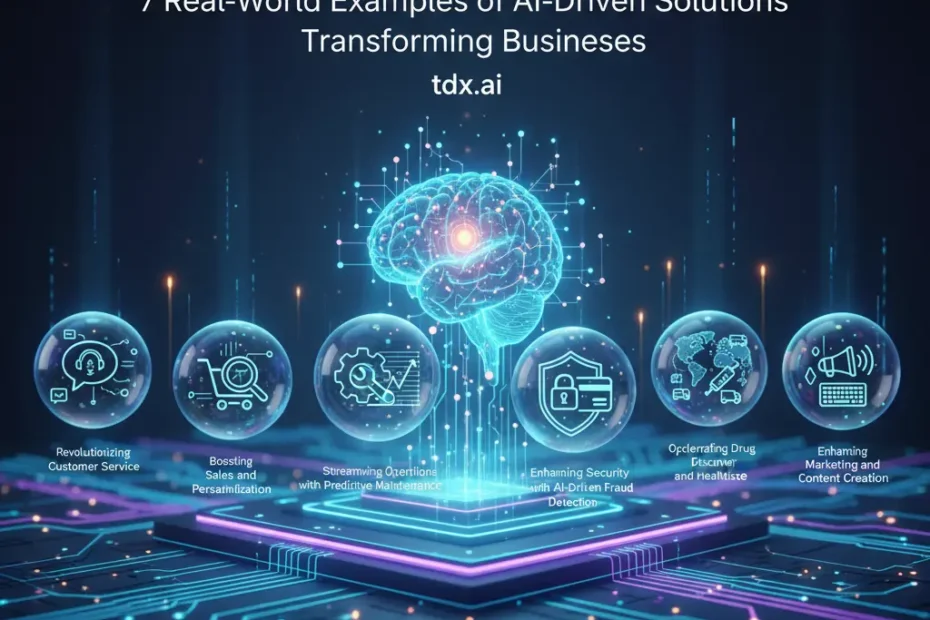Discover how AI-driven solutions are delivering real-world business impact. This article explores 7 concrete examples of AI applications, from customer service to supply chain optimization, that are solving problems and driving tangible benefits today.
Beyond the Hype: 7 Real-World Examples of AI-Driven Solutions Transforming Businesses Today
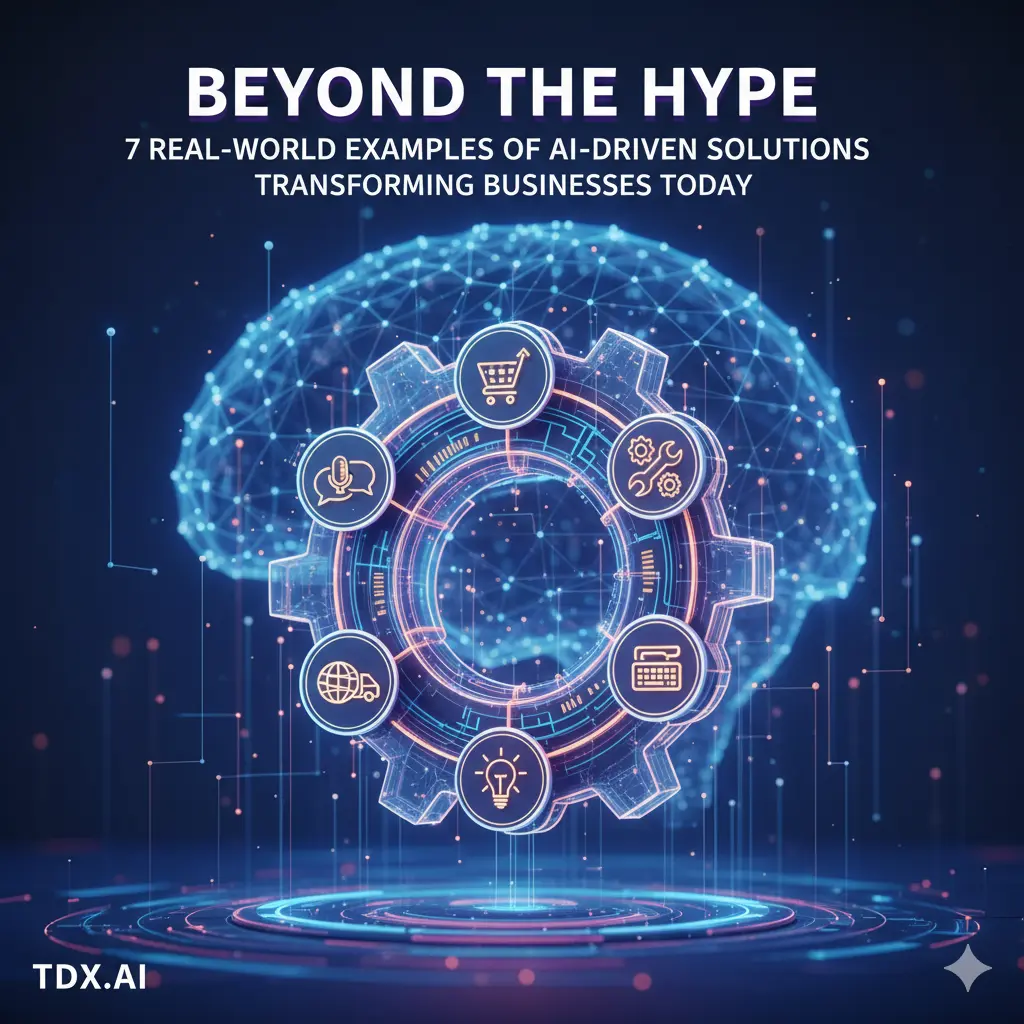
The term “artificial intelligence” (AI) often brings to mind futuristic robots or complex, abstract concepts. But for businesses in the US and globally, AI-driven solutions aren’t a thing of the future—they’re a reality. These technologies are delivering a real-world AI business impact, solving problems and creating tangible AI benefits across industries. It’s no longer about speculation; it’s about seeing how real-world AI applications are fundamentally changing how companies operate.
This article dives into seven concrete examples of business transformation with AI, moving past the buzzwords to highlight practical AI use cases and the direct value they provide. From enhancing customer experience to optimizing complex logistics, these cases demonstrate the true power of artificial intelligence for business.
1. Revolutionizing Customer Service with AI Chatbots & Virtual Assistants
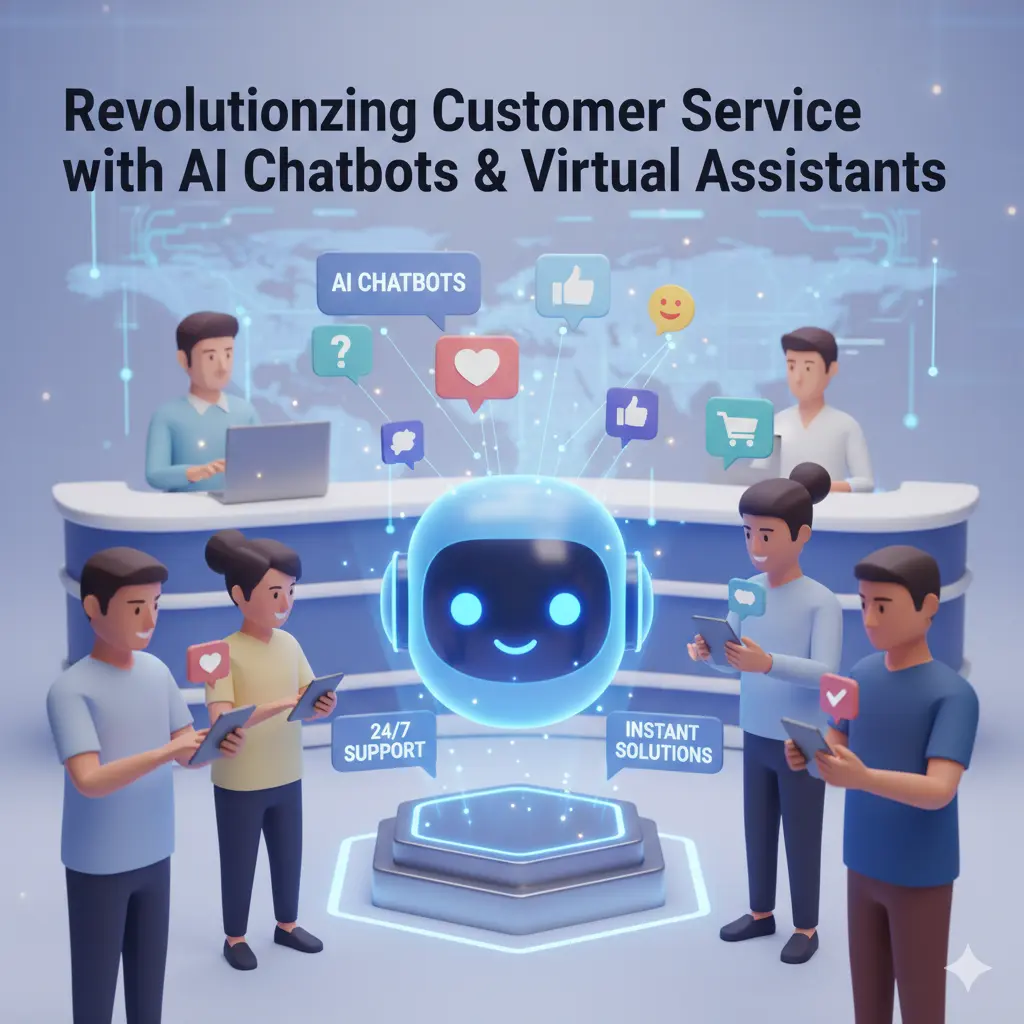
One of the most visible AI-driven solutions is the use of intelligent chatbots and virtual assistants. These tools are no longer just simple Q&A bots; they are sophisticated systems powered by natural language processing (NLP) that can handle a vast range of customer inquiries.
Business Impact: A major telecommunications company, for example, used an AI virtual assistant to handle over 70% of routine customer support tickets, resulting in a 40% reduction in support costs and a significant increase in customer satisfaction scores. This is a clear demonstration of tangible AI benefits.
Problem: High call volumes and repetitive questions overwhelm human customer service teams, leading to long wait times and frustrated customers.
Solution: Businesses deploy AI chatbots on their websites and social media platforms to instantly address common queries, such as order tracking, billing questions, or product information. This frees up human agents to focus on more complex issues that require empathy and problem-solving skills.
2. Boosting Sales and Personalization with AI-Powered Recommendations
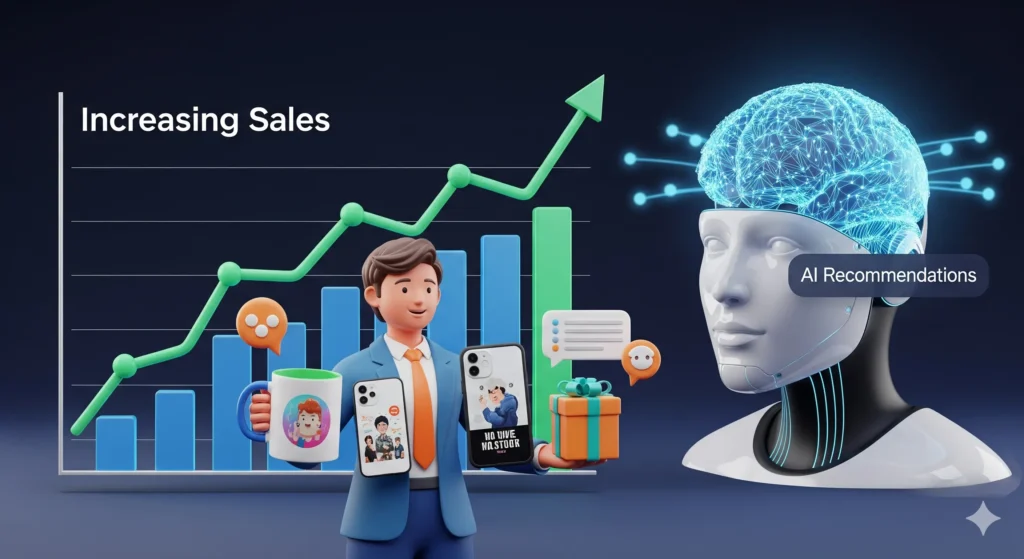
Have you ever wondered how Netflix knows exactly what you want to watch next, or how Amazon suggests products you can’t resist? This is a prime example of real-world AI applications in action.
- Problem: E-commerce businesses struggle to personalize the shopping experience for millions of unique customers, often leading to generic product displays and lost sales opportunities.
- Solution: AI recommendation engines analyze a customer’s browsing history, purchase behavior, and demographic data to generate highly relevant product suggestions. This hyper-personalization creates a more engaging and effective shopping journey.
- Business Impact: Retailers using this technology report a 15-30% increase in conversion rates and higher average order values. By anticipating customer needs and interests, AI directly contributes to a company’s bottom line.
3. Streamlining Operations with Predictive Maintenance
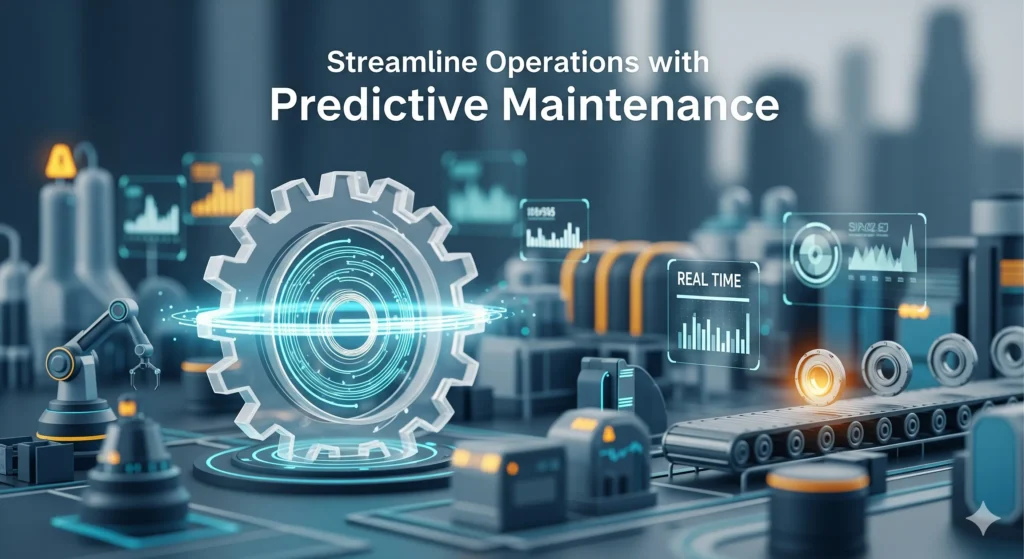
In manufacturing and logistics, an unexpected machine breakdown can lead to massive losses. AI in business is helping companies get ahead of these problems.
- Problem: Reactive maintenance—fixing machinery after it breaks—is costly, inefficient, and can halt production for hours or even days.
- Solution: AI systems analyze data from sensors on equipment to predict when a component is likely to fail. This allows maintenance teams to schedule repairs proactively before a failure occurs.
- Business Impact: Airlines are a great example. By using AI to predict when jet engine components need servicing, they can prevent costly in-flight issues and unplanned groundings, saving millions in repair and operational costs while improving safety. This showcases the incredible AI business impact on operational efficiency.
4. Enhancing Security with AI-Driven Fraud Detection
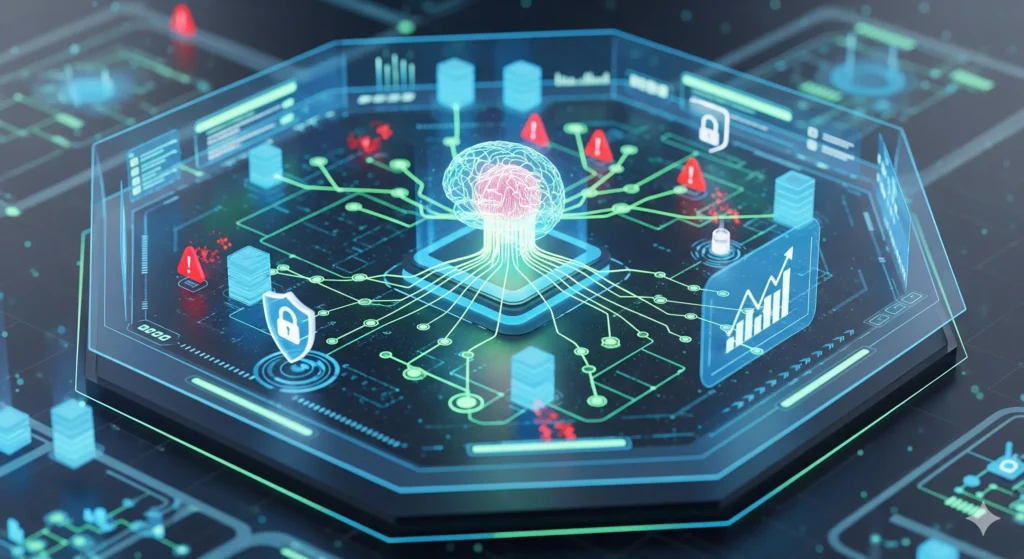
Financial fraud is a multi-billion dollar problem. AI is proving to be an indispensable tool in the fight against it.
- Problem: Traditional, rule-based fraud detection systems are often slow and ineffective against new, complex fraud patterns. They also frequently flag legitimate transactions, causing inconvenience for customers.
- Solution: AI models, particularly machine learning, are trained on billions of transaction records to identify minute anomalies and suspicious behaviors in real time. The system can instantly flag a transaction for review or decline it automatically if it fits a high-risk profile.
- Business Impact: Banks and credit card companies have seen a reduction in fraud-related losses by up to 50%. This not only protects the business but also instills greater trust and security for consumers.
5. Optimizing Supply Chains and Logistics

The modern supply chain is a web of moving parts. AI-driven solutions are bringing a new level of precision to this complex field.
- Problem: Manual planning and outdated forecasting methods lead to stockouts, overstocking, and inefficient delivery routes, all of which eat into profits.
- Solution: AI and machine learning algorithms analyze historical sales data, real-time weather, traffic patterns, and even social media trends to create highly accurate demand forecasts. This helps optimize inventory levels, route delivery trucks more efficiently, and minimize waste.
- Business Impact: A large retail chain used an AI-powered system to optimize its delivery routes, reducing fuel consumption by 25% and ensuring products were on the shelves when customers wanted them, a clear win for both the environment and the bottom line.
6. Accelerating Drug Discovery in Healthcare

The path from a scientific hypothesis to a new drug is incredibly long and expensive. Artificial intelligence for business is speeding up this critical process.
- Problem: Manually sifting through vast amounts of genetic data and chemical compounds to find potential drug candidates is a time-consuming and labor-intensive process that can take years.
- Solution: AI algorithms can analyze genetic sequences and molecular structures at an unprecedented scale, identifying potential drug targets and predicting how new compounds will interact with the body.
- Business Impact: Pharmaceutical companies are now using AI to reduce the time it takes to identify viable drug candidates by years, bringing life-saving treatments to market faster and at a lower cost.
7. Enhancing Marketing and Content Creation
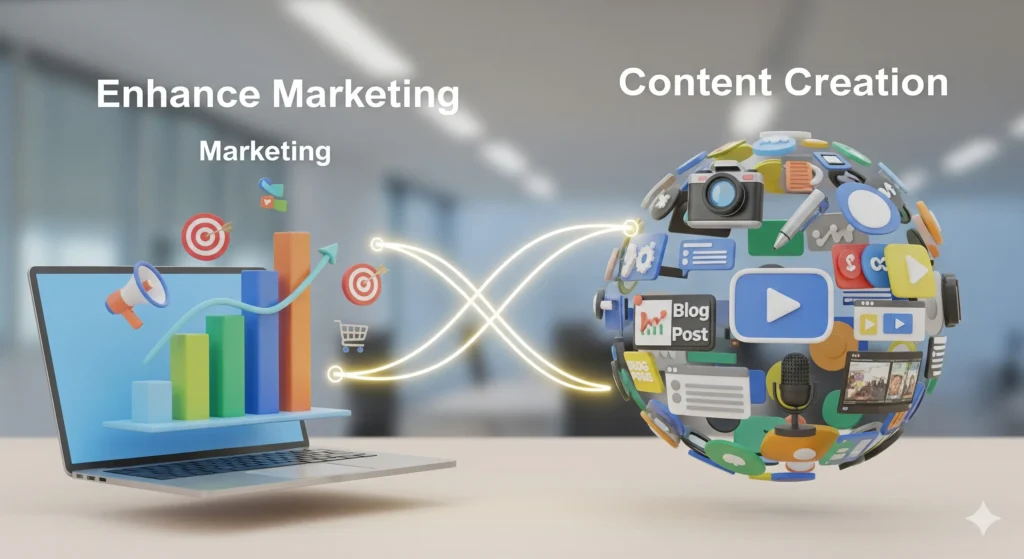
AI is transforming how marketing teams reach and engage their audiences.
- Problem: Creating and distributing personalized content at scale is a significant challenge for marketing teams, leading to generic campaigns that fail to resonate with customers.
- Solution: AI tools can analyze audience data to identify optimal content topics, generate blog post outlines, and even write email copy. Furthermore, AI can optimize ad spend in real-time by predicting which campaigns will perform best with specific audience segments.
- Business Impact: A digital marketing agency used an AI-powered content tool to increase its blog’s organic traffic by over 100% within six months. The tool’s ability to identify high-potential keywords and topics based on search trends was key to this success.
The Future of Business is AI-Driven
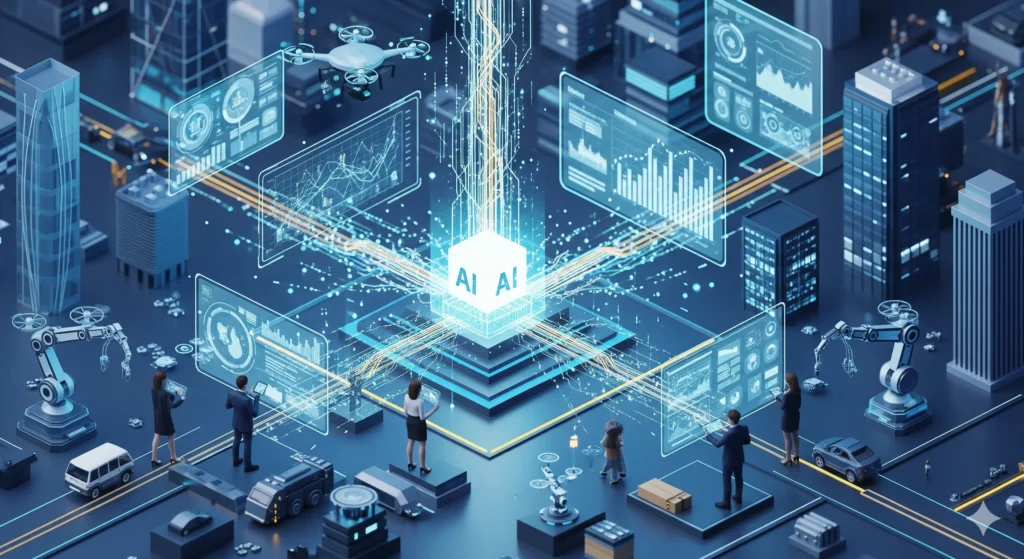
These seven examples are just a glimpse into the profound impact of AI. The common thread is clear: these aren’t just trendy technologies, but practical, problem-solving tools that provide a tangible return on investment. The future of business, from enterprise giants to small startups, will be defined by its ability to adopt and integrate these powerful AI-driven solutions. As these real-world AI applications become more accessible, the opportunities for business transformation with AI will only continue to grow.
